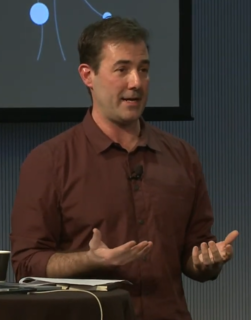A Quote by William Hurt
The problem with Google is you have 360 degrees of omnidirectional information on a linear basis, but the algorithms for irony and ambiguity are not there. And those are the algorithms of wisdom.
Quote Topics
Related Quotes
These algorithms, which I'll call public relevance algorithms, are-by the very same mathematical procedures-producing and certifying knowledge. The algorithmic assessment of information, then, represents a particular knowledge logic, one built on specific presumptions about what knowledge is and how one should identify its most relevant components. That we are now turning to algorithms to identify what we need to know is as momentous as having relied on credentialed experts, the scientific method, common sense, or the word of God.
It's difficult to make your clients understand that there are certain days that the market will go up or down 2%, and it's basically driven by algorithms talking to algorithms. There's no real rhyme or reason for that. So it's difficult. We just try to preach long-term investing and staying the course.
Competitors argue that Google rigs its search algorithms to demote listings for competing search engines. Many of the allegations of demotion come generally from sites of pretty questionable quality, such as Nextag and Foundem. Some of Google's primary competitors in 'specialized search' clearly place well in search results - Amazon and Yelp.



































